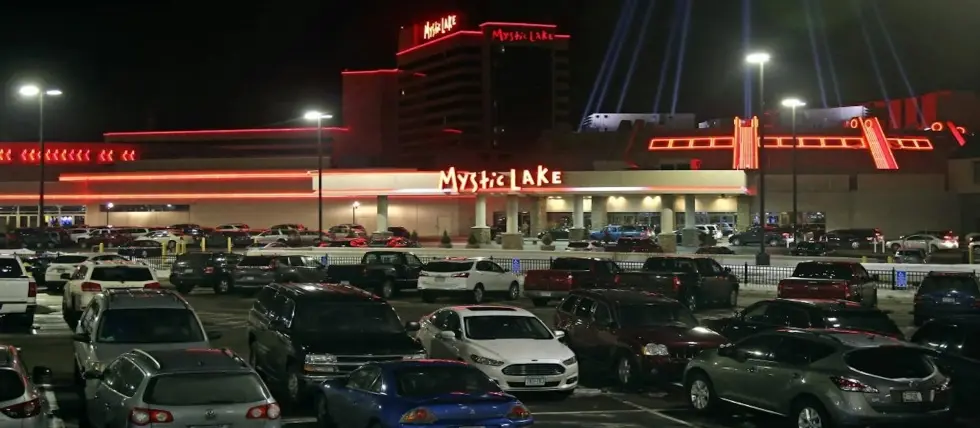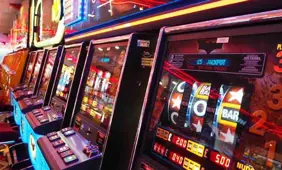Minnesota Supreme Court Decision to Direct Non-tribal State Gambling
The Minnesota Supreme Court is currently deliberating a case that could determine the scope of tribal exclusivity over certain forms of gambling in the state. At issue is whether electronic gambling tables installed at an off-reservation venue, Running Aces, violate agreements that give federally recognized Native Indigenous tribes exclusive rights to operate video games of chance.

The legal dispute centers around the use of Interblock electronic gaming technology, which facilitates games like blackjack, poker, and baccarat without a human dealer. Running Aces, located about 40 minutes north of the Twin Cities, functions as both a horse racing venue and a card club.
Related: Lawsuit Accuses Tribal Casinos in Minnesota of Violating Federal LawsDespite its operations, the facility is prohibited under state law and tribal compacts from offering electronic gambling devices. These restrictions are part of longstanding agreements between the state of Minnesota and the 11 federally recognized tribes, which have sought to preserve the integrity of tribal gaming exclusivity across the state.
The Shakopee Mdewakanton Sioux Community, which operates a casino southwest of Minneapolis, has challenged the legality of Running Aces' use of electronic tables. Representing the Sioux Community, attorney Josh Peterson argued that these devices effectively constitute video games of chance and are drawing customers away from tribal casinos. He emphasized that the machines rely on button-pressing rather than live dealers, aligning them more closely with prohibited video gaming devices than with traditional table games.
In defense, Running Aces maintained that the devices do not fall under the classification of video games of chance as defined in tribal compacts. Evan Nelson, the card club's attorney, argued that both the Sioux Community and Running Aces are equally permitted to offer card games. He also noted that there is no conclusive evidence demonstrating that the installation of electronic tables has led to a significant shift in customer behavior or loss for tribal casinos.
The dispute emerged following the Minnesota Racing Commission's 2023 decision to approve a floor plan change for Running Aces, allowing the addition of another electronic dealer. The Sioux Community contends that this expansion violates a statutory limit that restricts card clubs to 80 tables. The Minnesota Court of Appeals previously upheld the commission's approval but did not address whether the electronic tables violated the state's definition of video gambling devices.
More Business News
 Business
Business
Betsson Rejects Dutch iGaming Market Return amid Regulatory, Government Challenges
Jun 05, 2025Redefining Table Games
Much of the Supreme Court hearing focused on defining the term "table" and determining how many players can legally participate per table. The number of allowable players per table is not explicitly defined in state statute or by the Racing Commission.
Assistant Attorney General Josh Peterson, who represented the commission, explained that the approval was based solely on whether the number of tables exceeded the statutory cap. He added that customer count per table does not influence this calculation.
Several justices expressed uncertainty over how to apply the statutory limit, with questions arising about whether a standard industry definition for card tables exists. Associate Justice Sarah Hennessy remarked that using a general dictionary definition for "table" may not adequately address the nuances of the gaming industry, noting the absence of a clear industry standard. Commission counsel Pesch responded that previous limits had ranged from seven to eleven players and that the commission evaluates each proposal individually.
Justice Paul Thissen questioned the practicality of this approach, asking whether the commission could have approved Running Aces' request while simultaneously requiring it to reduce its player count per table. Pesch refrained from providing a definitive answer, stating instead that the commission would follow the court's ultimate decision and defer to its judgment regarding player limits and table definitions.
Running Aces has also argued that the Sioux Community lacks standing to bring the lawsuit. However, the Minnesota Court of Appeals ruled that the tribe does have standing, prompting the commission to drop its challenge on that basis. During oral arguments, the Supreme Court justices appeared skeptical of Running Aces' continued insistence that the tribe lacks standing.
RELATED TOPICS: Business
Most Read
PAGCOR Board Members Submit Courtesy Resignations Following Presidential Directive
May 30, 2025Must Read
 Interviews
Interviews
Sweepstakes Casinos: Thriving in an Ever-Changing Industry – Interview with Attorney Stephen C. Piepgrass
Feb 17, 2025 Interviews
Interviews











Review this New Post
Leave a Comment
User Comments
Comments for Minnesota Supreme Court Decision to Direct Non-tribal State Gambling